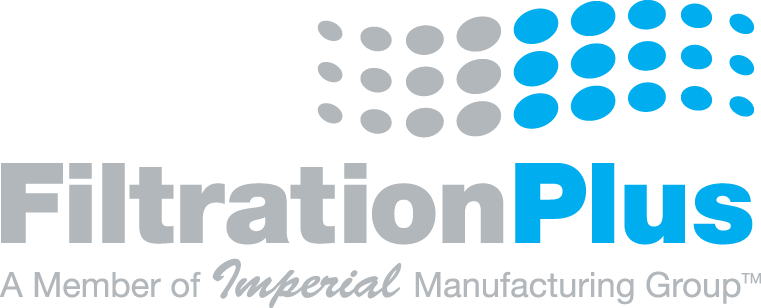Most Canadians spend a significant amount of time indoors on a regular basis. With the population now practicing self-isolation to reduce spread of COVID-19, questions are arising about indoor air filtration systems and the efficiency of air filters protecting occupants from the virus.
Transmission
Health Canada states that Coronavirus, including COVID-19, has dominant transmission routes, and can easily spread from an infected person by:
Respiratory droplets from an infected person coughing, sneezing or talking;
Shaking hands or touching, close human contact; and,
Via surface – touching a surface or object with the virus on it, then touching your face before washing your hands.
The best way to protect oneself and one and other is with evidence-based information. Social distancing, isolation of known cases, and consistent hand washing with soap for 20+ seconds are the best way to prevent the spread of COVID-19.
Is COVID-19 Airborne, and will Air Filtration help?
With respect to air filtration, as the scientific community studies this virus the current consensus is that infected droplets seem to fall quickly in the air, and do not float around a room or building for very long. While other viruses are airborne, it seems that the risk of droplets entering an HVAC system of a building and being circulated through that system and exhausted into other areas is low.
Note: The World Health Organization is continuously assessing COVID-19 and how it spreads and will continue to update as they understand more about this new virus. Filtration Plus is dedicated to staying up to date on this information and will update accordingly.
I Want to Take Every Precaution Possible – What Air Filter Might Help?
We understand that everybody wants to take every precaution possible to protect against COVID-19. Proper filtration in HVAC systems can be part of risk mitigation but are not observed as a solution. There is no scientific evidence of benefit, but reduced exposure can be inferred, contingent on the ability of some filters to remove relevant-sized particulate. For air filters to protect against a virus, transmission has to occur through the air.
What filter should I use to protect those in my building from COVID-19?
There is no obvious answer to this question given unknowns about the nature of SARS-CoV-2 containing particles and droplets, as well as the broader issues raised above. We do know that low-efficiency filters (e.g., less than MERV 8 according to ASHRAE Standard 52.2 or less than ePM2.5 20% according to ISO 16890-1:2016) are very unlikely to make a difference. Properly installed higher efficiency filters can remove particles of a relevant size depending on their installed capture efficiency, but current information does not allow for specific recommendations.
Why shouldn’t I just use the highest-efficiency filter that I can find?
High-efficiency filters may be appropriate for your building, but they can also be counterproductive. A high-efficiency filter may have a high initial pressure drop and/or load with dust and particles very quickly, thus requiring frequent filter changes. A high-pressure drop filter (either because it is that way when it is new or because it loads quickly) can also cause more air to bypass the filter if it is not properly installed and well-sealed. Depending on the design of your system, a high-pressure drop filter can also diminish the amount of air supplied into the environment, making the filter less effective as well as causing other problems with other parts of the HVAC system. Most importantly, in many residential and some light commercial systems, the fan in the system does not run very often and the efficiency of the filter may not be as important as it could be.
I know that hospitals have good filtration, why don’t we all just use systems like these?
Hospitals (and many healthcare facilities) have specially designed mechanical systems that can accommodate the levels of filtration that they need. They often rely on other systems and control strategies (e.g., UV lamps, humidity control, airflow management) to maximize the benefit from filtration. Most importantly, they have dedicated staff who operate and maintain this equipment so that it provides maximal benefit.
Where can I go to get more information?
The best place for all COVID-19 information is your local, regional, and national health authorities. More information specific to building systems can be found here:
ASHRAE: https://www.ashrae.org/technical-resources/resources
REHVA: https://www.rehva.eu/activities/covid-19-guidance
Prof. Jeffrey Siegel is a professor in the Department of Civil & Mineral Engineering at the University of Toronto and an expert in indoor air quality. His research has looked at a wide variety of airborne particles and air cleaning approaches, however, he has not specialized in infectious diseases or viruses. This information is meant to supplement that coming from global, national, and local health authorities and is specifically meant to address an issue that is not currently well-addressed. Prof. Siegel is grateful for comments and edits from several including the following individuals and their review does not imply endorsement by any individual or institution.
Thank you
Finally, the entire team at Filtration Plus would like to send a heart felt thank you to those on the front lines. To the health care workers who are going all out – thank you for your care and compassion. Thank you to the essential service workers, and those in our community taking the proper precautions to flatten the curve of COVID-19. We are sending our best wishes to local business owners and staff of the many restaurants, bars and shops in our community that we love so much and forward to visiting just as soon as we are able. We are all in this together.
